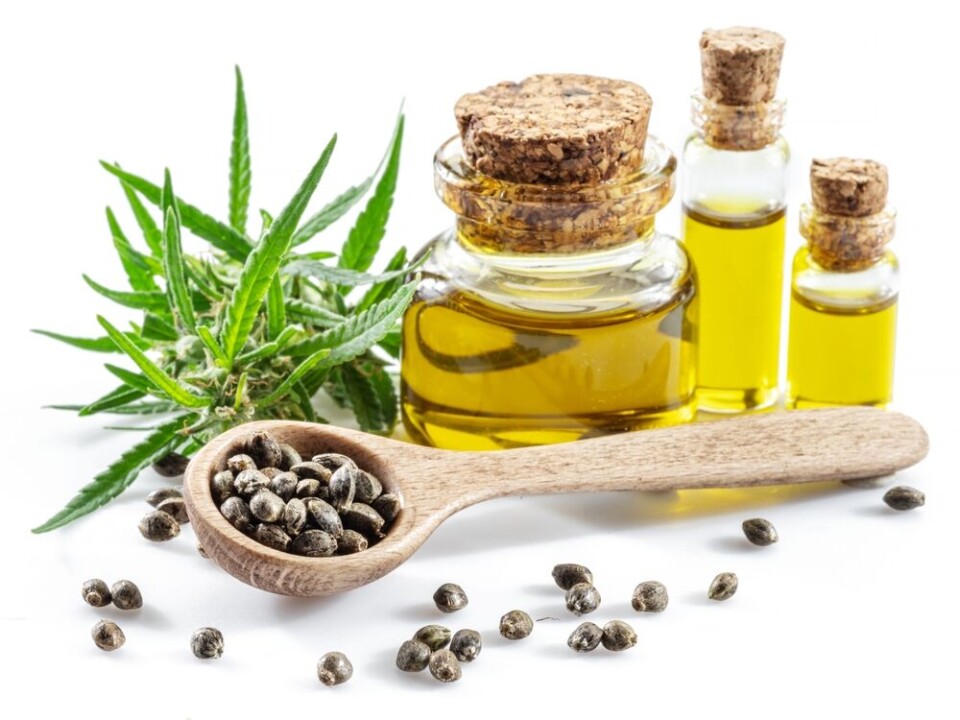-
White storks make strong return in France via nest ‘platforms’ and clipped wings
The Ligue pour la Protection des Oiseaux shares the conservation challenges in saving these birds from extinction
-
Efforts to reintroduce black vultures in France
Plus, wildlife spotter, Jonathan Kemp, shares his experience of searching for bearded vultures around his home in Aude
-
Let your lawn grow, water for birds: how to help wildlife in your French garden
‘It is acceptable to have untidy hedgerows,’ says biodiversity spokesperson.
Versatile and ecologically sound: Hemp production increases in France
This extraordinary plant can be used in many industries, from medicine to construction

Hemp is making a comeback as a crop with extraordinary potential, ticking all the boxes for an environmentally friendly plant with a wide range of uses. France is the leading grower in Europe and third in the world, with 17,000 hectares in total and 1,500 farmers.
For centuries hemp was a staple crop used for food, cloth, paper and rope. In 800AD, King Charlemagne advocated its use in everyday life.
The first Bible was printed by Gutenberg in 1456 on hemp paper. The Royal Ropery at Rochefort supplied the tonnes of hemp rope required for each naval ship over two centuries.
In 1830, 176,000 hectares were grown in France and at the beginning of the 20th century it was one of the most widely grown crops in the world. Then competition from cotton and petro-chemical substitutes led to its decline and by 1960 there were only 700 hectares left in France.
Read more: France should establish its own CBD production industry, says MP
Zoé Demange from UIVEC, the body which represents the hemp industry, says it is a very green crop, adding to its new attraction: “It is resistant to disease and grows without pesticides, fungicides or herbicides. It does not need irrigation and a one-hectare field of hemp absorbs as much CO2 as one hectare of forest.”
All parts of the plant can be used: “Fibres from its stem are made into textiles, paper, rope, insulation and a concrete hemp, which is produced by mixing a part of the straw with earth or lime and can be used to build walls. It is going to be used in the construction of the Paris Olympic 2024 village.”
Hemp granules are used in a “green” plastic for car construction, garden furniture, door and window frames and cladding.
The straw is also sold as bedding for animals and garden mulch while the seed is a superfood, which can be eaten as a grain, flour or oil, and is high in protein. The oil is also used in cosmetics.
It is perhaps best known for CBD, sold as a “feel good” compound, said to reduce stress and anxiety without side effects and without causing addiction. It is the same plant species as the one producing the drug cannabis, but a different variety with a far lower level of THC, the principal psychoactive constituent of cannabis.
It has even been used to produce the first CBD infused wine in France, Burdi W, made by Raphaël de Pablo in the Gironde, who was astonished when his first five hundred bottles sold out in a day.
Read more: France’s green party calls new CBD ban ‘absurd gift to drug dealers’
Its legal position has been unclear but in November 2020 the European Court of Justice ruled that France could not ban the sale of CBD as long as it had been legally produced in another European country member state. Charles Morel, president of the Union des Professionnels du CBD says since then more and more shops are opening all the time: “We counted 1,800 in a recent survey, but that has already grown to nearer 2,000. Between eight and 10 percent of the public buy our products, but half the population does not know about CBD yet, so there is huge potential for growth.”
But the legal status of sales in their shops keeps changing. At the beginning of January, the government introduced new CBD regulations, which included a ban on sales of untreated flowers and leaves: “Around 60% of turnover is from flowers used in tisanes or smoked,” says Charles Morel.
“The government say it is too difficult to distinguish between the flowers of legally grown hemp and cannabis.” They were relieved when this was overturned provisionally by the highest court in the land, the Conseil d’Etat a month later, but seek clarification of the law, which is in a constant state of flux.
Zoé Demange says the good news from the new government regulations is that for the first time leaves and flowers grown in France can be processed legally to be taken in the form of oil, resin or e-liquid for electronic cigarettes, and it has been estimated this market alone, without including the flowers and leaves in their raw state, could be worth nearly €700M in France this year.
“We may also see other compounds called CBG and CBC on sale soon as scientists in the USA are exploring other compounds from hemp beneficial to health, which will increase the potential of the market in France.”
Related stories:
Explore the magical gardens of Le Jardin des Plantes Magiques
Cannabis should be legal but controlled in France, says MP
French MPs propose lighter regulation for CBD industry
























